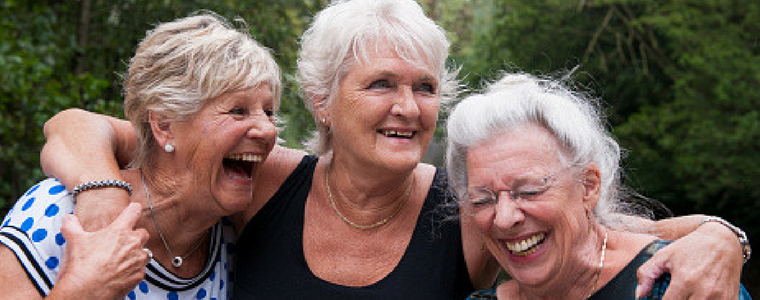Third Age and International Women’s Day
Posted on 7th March 2018

Thursday, March 8 is International Women’s Day promoted to draw attention to the needs and causes of women worldwide. In Ireland, women over 65 number 340,750 according to the latest census figures, (compared to 296,000 males), with 45,000 of these being women aged 80 and over. Women traditionally live longer than men do with the inevitable consequence that widowhood is a sad fact for many. These trends are reflected on SeniorLine, Ireland’s only national telephone service for older people, where the majority of callers are female, and many are dealing with issues of loneliness and loss.
Some other issues reported by women on the line include elder abuse, the fear and insecurity of living alone, and poverty. It is recognised that older people living alone are at particular risk of poverty, and seven out of 10 lone adults aged between 75 and 84 are women. Older women living alone in rural Ireland are, on average, €57.65 short of what is required for the minimum standard of living, according to research carried out by the National Women’s Council of Ireland.
Women callers – as male callers – can also suffer from illness, frailty and some of the diseases associated with age. Older women who have spent their lives as homemakers may be less computer literate, and lack of access to Internet skills can add to social isolation and difficulty with bill paying online and other aspects of modern life.
International Women’s Day also calls for gender equality. During 2017, it was finally acknowledged that many women throughout Ireland are at risk of poverty because of unfair state pension policies. On average, women’s state pensions are smaller than men’s by more than one third, and the proportion of women in receipt of the contributory pension is significantly lower than men. This is partly because earlier in life many women left the workforce for periods to look after children or older relatives. This diluted their yearly average PRSI contribution. It is a sad indictment of our pensions system that this willingness to care for others leaves so many women without an adequate income in older age. The Homemakers Scheme was introduced in 1994 to compensate women who took career breaks, and more recently, the European Commission has called for the scheme to be applied retrospectively by the state to ensure more equitable pension provision. The Minister for Social Protection, Regina Doherty, is currently working on potential solutions to regularise the situation.
It is also true that older women may be more emotionally resilient than men in the same situation. Women often have supportive and effective social networks. Many callers to SeniorLine are involved mothers, grandmothers, childminders, friends and neighbours, and some calls revolving around family difficulties can arise precisely these older women care. Also, SeniorLine has a predominantly female volunteer force – older women willing to support other older people. Helena is one such volunteer: ‘Life is good. My husband and myself are in good health, our four children are reared. I feel at this stage I have a little time to give”, she says. Aine Brady is CEO of Third Age, the not-for-profit organisation that manages SeniorLine and other national programmes: “Through our programmes, Third Age reaches out to older people in need, while at the same time promoting the contribution of older people able to remain engaged with life. One of our unique selling points is that we recruit and train older volunteers to deliver many of our programmes to their more vulnerable peers. This is a win-win model. On this International Women’s Day, we salute especially our women volunteers who place their maturity, skills and empathy at the service of the thousands of their peers who benefit from our programmes each year,” she said.
Anne Dempsey, Third Age Communications Manager 087-7450721 is available for interview


